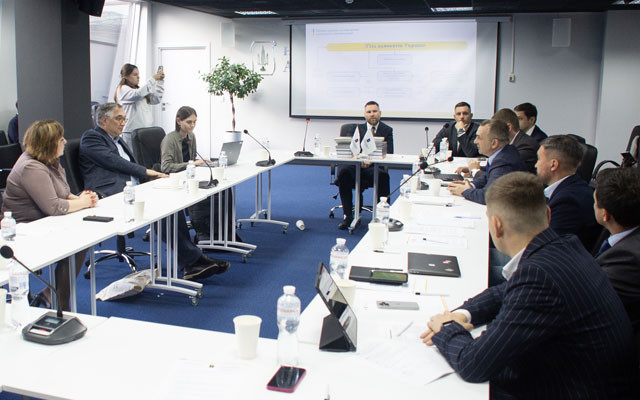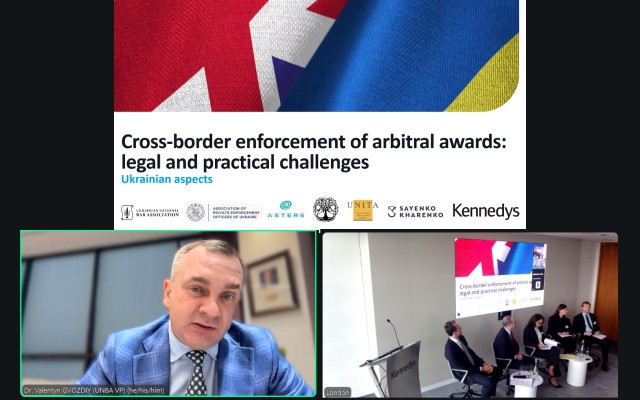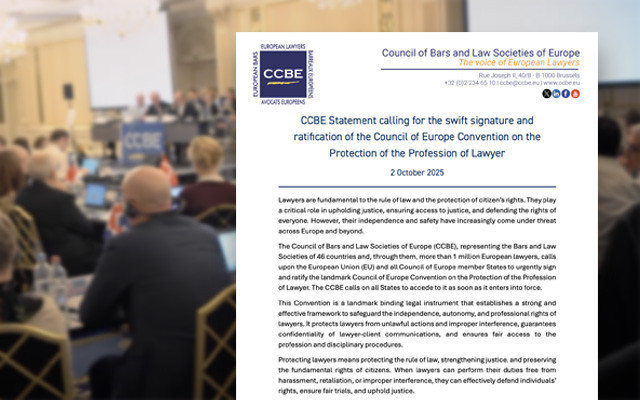Risks to business from virtual asset regulation identified by the UNBA

The current version of the draft law on virtual asset circulation creates an environment that is incompatible with the principles of an innovative economy and the rule of law. In order to prevent the destruction of the crypto sector in Ukraine, it is necessary to systematically review the legislative initiative.
These conclusions were reached by the Committee of the Ukrainian National Bar Association on customs and tax law following a review of draft law No. 10225-d dated 24 April 2025 «On amendments to the Tax Code of Ukraine and certain other legislative acts of Ukraine regarding the regulation of virtual asset transactions in Ukraine», which the Verkhovna Rada adopted as a basis.
The authors of the legislative initiative seek to create a legal framework for regulating virtual asset transactions in Ukraine, ensuring their legal use, taxation, and protection of market participants' rights.
According to experts from the UNBA Committee, the draft is indeed one of the most ambitious attempts to comprehensively regulate the virtual asset market in Ukraine. The initiative provides for a radical transformation of the legal landscape through the creation of a new regulatory architecture, the introduction of an 18% tax rate, and the formation of a state supervision system. The latter raises serious concerns about corruption risks.
The most critical aspect of the draft is the granting of powers to the future regulator and the National Bank of Ukraine that are atypical for a financial supervisory authority.
Thus, Article 114 of the draft law provides for the right to inspect premises, access documents and data carriers on the basis of its own resolution, as well as to question witnesses in a format similar to interrogation.
In the opinion of the UNBA, this creates a dangerous precedent, removing investigative (in essence) actions from the sphere of criminal procedure. Another law enforcement agency is being created under the guise of a financial regulator, which creates risks of pressure on business without adequate legal safeguards.
Another problematic area that advocates have drawn attention to is the unrealistic requirements for market participants and excessive compliance pressure. The draft law obliges even foreign platforms, such as Binance or Coinbase, to register with the State Tax Service of Ukraine and report on the transactions of Ukrainian users. Failure to comply with this obligation is punishable by fines of 100 minimum wages. The implementation of such requirements is virtually impossible, and the practical consequence will be the isolation of Ukrainian users.
In addition, the exchange of virtual assets between citizens is proposed to be allowed only through «authorized institutions». This prohibits direct P2P exchange, which is currently the most common method of transaction, and threatens to push users into a «gray area» where there are increased risks of fraud.
It is also noted that the new requirements for recording transactions, calculating exchange rate differences, and documenting expenses are overly complex for individuals and practically unenforceable. If it is impossible to submit a complete set of documents, the tax authorities will be able to recognize the expenses as zero, turning income tax into a turnover tax.
Among other problematic provisions, the UNBA notes the disproportionate nature of financial sanctions and excessive barriers to market entry. Even taking into account the transitional coefficients, the maximum fine for a legal entity in 2030 could reach UAH 480 million, which means the liquidation of the business for a single violation.
Strict authorization and capital requirements create insurmountable barriers for small and medium-sized businesses, which will contribute to the monopolization of the market by a few large players. Separate attention is drawn to the restrictions for residents of Diia City, who are prohibited from conducting transactions with virtual assets.
In addition, the draft law, following the European MiCA approach, classifies virtual assets into three categories, but does not establish clear criteria for distinguishing them from financial instruments or deposits. This creates legal uncertainty, as the status of an asset and its regulatory regime may be changed by subordinate legislation, which threatens market stability and legal certainty for investors.
The UNBA emphasizes that the draft law needs to be substantially revised before the second reading. First of all, the regulator should not be granted investigative powers, as this contradicts the principles of the rule of law and creates risks of abuse.
The UNBA proposes to focus on regulating the activities of Ukrainian service providers rather than introducing extraterritorial requirements for foreign companies. For individuals, the taxation system should be simplified—for example, by introducing a fixed rate for transactions above a certain annual limit without burdensome accounting procedures.
The legal community also calls for reducing the amount of financial sanctions to a proportionate level, allowing residents of Diia City to work in the field of virtual assets, and providing simplified mechanisms for startups, in particular in the format of a «regulatory sandbox» for testing innovative projects.
These and other comments and proposals have been sent by the UNBA to the Verkhovna Rada Committee on finance, tax and customs policy.
Popular news

Interaction
Advocates discussed possible areas of cooperation with the business ombudsman
Protecting the legitimate interests of businesses is a common area of work for advocacy and the Business Ombudsman Council. The former is an independent constitutional institution within the justice system, while the latter is an important element of the mechanism for responding to complaints from entrepreneurs.

Legislation
UNBA supported the draft law on restoring sovereignty
The Ukrainian people alone have the right to form state authorities. Delegating powers to form authorities to persons who are not citizens of Ukraine is contrary to the provisions of the Constitution.

Legislation
Risks to business from virtual asset regulation identified by the UNBA
The current version of the draft law on virtual asset circulation creates an environment that is incompatible with the principles of an innovative economy and the rule of law. In order to prevent the destruction of the crypto sector in Ukraine, it is necessary to systematically review the legislative initiative.

Legislation
Sole judge or panel? Criteria for determining the composition of the court must be specified in the law
When court rules depend not on the law but on human discretion, this creates room for legal uncertainty. The limits of judicial discretion have once again come into focus following the emergence of a legislative initiative that changes the approaches to the activities of judges of the High Anti-Corruption Court.

Abroad
London arbitration talk: jurisdictions, sanctions, assets, immunity
On September 29, experts and practitioners from the UK, Poland, France, USA, UAE and Ukraine gathered in London to discuss the recognition and enforcement of arbitral awards in different jurisdictions, as well as mechanisms for locating and seizing assets.

Legal Aid
A new competition for FLA advocates has begun
A competition has been announced to select advocates who will be involved in providing free secondary legal aid. It will last until December 8, 2025, throughout Ukraine, except for Donetsk, Luhansk regions, and the Autonomous Republic of Crimea.

Guarantees of the practice of law
The CCBE called for the urgent ratification of the Convention on the protection of the profession of advocate
The Council of Bars and Law Societies of Europe (CCBE) has called on all states to sign and ratify the Council of Europe Convention on the protection of the profession of advocate as soon as possible, as the integrity of justice and trust in the rule of law depend on it.

Legal Aid
The Cabinet of Ministers supported the idea of expanding the circle of recipients of FLA
Orphans and children deprived of parental care aged 18 to 23 will be able to receive free secondary legal aid.
Publications

Censor.net Protecting advocates – protecting justice: addressing concerns about the new law

Ihor Kolesnykov A BRIEF SUMMARY REGARDING THE APPLICATION OF THE ORDER ON EXTENDED CONFISCATION IN LATVIA REGARDING FINANCIAL ASSETS OF…

Valentyn Gvozdiy WORKING IN A WAR ZONE

Lydia Izovitova Formula of perfection

Sergiy Vylkov Our judicial system is so built that courts do not trust advocates

Iryna Vasylyk Advocacy in the proclamation of Independence of Ukraine

Oleksandr DULSKY When we cross the border of the Supreme Anti-Corruption Court, we get into another department of the National Anti-Corruption…

Vadym Krasnyk The UNBA will work, and all obstacles and restrictions are only temporary inconveniences
